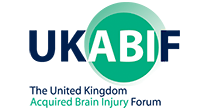When we discussed putting on a conference to focus on brain injury, faith and cultural differences, we thought this would make for a very interesting afternoon, and blessed with some wonderful presenters, this certainly turned out to be the case. A range of presentations considered the relationship between religion, culture and healthcare and this conference gave us so much to think about and to discuss.
Religion, culture, beliefs, and ethnic customs can influence how patients understand health concepts, how they take care of their health and how they make decisions related to their health. Health beliefs or cultural practices which are important to the patient and / or their family, can affect their decision-making, coping, support networks, commitment to treatment and general well-being.
There were many ‘take home’ messages from this conference and below are a few of these.
- Acknowledgement of these beliefs and practices by health and social care professionals is immeasurably important
- The need to learn from patients. Respectfully ask them about their religion, health beliefs, culture and ethnic customs and note their responses. Address patients’ cultural values specifically in the context of their health care
- Without proper training, clinicians, case managers or various support organisations may deliver advice without understanding how health beliefs and cultural practices influence the way that advice is received. Take advantage of opportunities to integrate cultural competence into all of your training activities.
- Community organisations such as religious institutions and cultural organizations can often provide information and support to help make your practice more “culture-friendly.” Invite a member of a relevant cultural group to attend a staff meeting and share observations about how cultural beliefs may impact health care. Invite an expert to conduct in-service training to educate staff about cultural competence.
- Help staff learn from each other and regularly review your organisation’s approach
ABIL would like to thank the following presenters for all the work they put in to providing us with such a fascinating and thought provoking programme.
An overview of 2004 study [Yamey, G & Greenwood, R (2004) Religious views of the ‘medical’ rehabilitation model: a pilot qualitative study, Disability and Rehabilitation, 26:8, 455-462] – Dr Richard Greenwood, Consultant Neurologist, National Hospital for Neurology and Neurosurgery, UCLH
SPECS (Social, Physical, Emotional, Cognitive and Spiritual) approach to rehabilitation – Dr Jenny Jim, DClinPsy MSc BSc(Hons) Principal Clinical Psychologist, The Children’s Trust & Birgitta Norton CPsychol, AFBPsS Senior Specialist Educational Psychologist, The Children’s Trust
Challenges of Cultural Differences in Community Cognitive Rehabilitation by BIS Services – Natalie Mackenzie (Director, Cognitive Rehabilitation Therapist) and Eky Popat (Operations Director, Certified Brain Injury Specialist)
Pray for me: Navigating cultural differences and needs in Case Management – Laura Mora, Advanced Case Manager & Kathryn Howard, Director of Case Management / Case Manager, Brain Injury Services Ltd
Community Support Work and Cultural Experiences – Julia Alexander, Manager of Support Work Service, Headway East London
Understanding behaviour and attitudes in young adults – Sara.R
FOOTNOTE: Dr Richard Greenwood and Gavin Yamey’s published study concluded that ‘Religious beliefs may both diverge from and resonate with the medical rehabilitation model. Understanding these beliefs may be valuable in facilitating the rehabilitation of diverse religious groups’. 15 years on from that study and it is still as relevant today as when it was undertaken.
We received some very positive feedback immediately after the conference:
“Great presentations during @Abilforum Conference. It was very insightful to see the different perspectives of various professionals. Looking forward to the next one!”
– Smashing event today at @Abilforum @irwinmitchell considering brain injury, faith and cultural differences. Lots of take home messages and food for thought – the sign of a good event!
“My key ‘take-home’ from @Abilforum looking at cultural and spiritual aspects with our clients and families – Curiosity rather than judgement to build trust as well as deepen understanding. Less judgement means less certainty for us but we need to be comfortable with that”
“Best conference I’ve been to this year!”
“I’ve learnt so much this afternoon”
The programme and following presentations can be downloaded below:
Thank you to the hard-working ABIL Committee for putting this conference together and thank you as always to Irwin Mitchell for their invaluable ongoing support.
Tony Hart – Chair of ABIL




